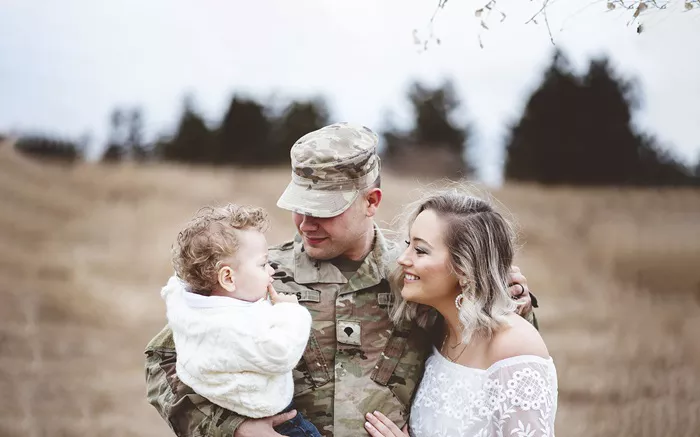MANSFIELD — Kevin McClatchy’s personal journey of understanding the effects of military service on veterans has led him to create the film Scrap Heap, a 55-minute project exploring the challenges veterans face, particularly with post-traumatic stress disorder (PTSD). The film will be screened for free at The Ohio State University-Mansfield on April 21 at 6 p.m., with a community conversation to follow.
The film is a powerful, darkly comedic exploration of the cost of war and the often-overlooked realities that service members face as they transition back to civilian life. It highlights the physical and mental struggles of veterans, and the responsibility society bears in supporting them.
McClatchy’s inspiration for the project came from conversations with his father, a U.S. Marine who served in the Pacific during World War II. Despite the significant impact the war had on his father’s life, it wasn’t until much later, when McClatchy was an adult, that he learned the full extent of his father’s experiences.
McClatchy explained, “I was sort of heartbroken and outraged on his behalf, but also immensely proud of the fact that he willingly served.” This moment led him to explore the hidden toll military service can take on individuals.
The film Scrap Heap is an extension of a one-man stage show McClatchy wrote and performed. He worked with his friend Jeff, a U.S. military veteran, to base the show on Jeff’s own experiences. Jeff’s challenges, both physical and mental, provided the backbone for the film’s narrative.
Though McClatchy is not a military veteran himself, he has used his art to raise awareness about the struggles faced by those who serve. His professional background as an actor and theater professor has allowed him to approach the subject with sensitivity and insight. McClatchy’s time spent learning about his friend Jeff’s service, as well as his own father’s experiences, deepened his understanding of the difficulties veterans face.
The free screening of Scrap Heap will take place at OSU-Mansfield’s Riedl Hall auditorium, followed by a discussion on the military-civilian divide. The event is open to all, with no pre-registration required. McClatchy emphasized the importance of fostering conversations between veterans and civilians to bridge this gap.
“The film has helped me widen my radar of how our veterans are portrayed,” McClatchy said. “People who have seen this film, including veterans, tell me that it helps express and amplify their struggles in ways they could not do alone.”
The community conversations after screenings have been an important part of the experience, McClatchy said. They allow veterans and civilians to discuss the differences in their experiences and find common ground. “Trauma is not exclusive to combat trauma,” he noted, pointing out that everyone faces challenges in their lives that connect them, despite different experiences.
McClatchy has also facilitated workshops for the military community and led a residency for Scrap Heap at the Wexner Center for the Arts. Now a professor at Ohio State, he continues to create work focused on veterans, and his efforts have had a significant impact on the community.
For McClatchy, the reactions from the community after screenings are the most rewarding part of the project. He often sees veterans who are initially reticent to speak but find it healing to share their stories in a supportive space. “Without fail at every event, there’s someone, usually a veteran, sometimes a military family member, who’ll start talking for several minutes. It gives them permission to express what they need to say.”
The screening and discussion of Scrap Heap offer an opportunity for the Mansfield community to engage in a meaningful conversation about the lasting impact of military service and the importance of supporting veterans as they transition back to civilian life.
Related topics:
Ketchup Entertainment Acquires ‘Coyote vs. Acme’ Rights
‘Rust’ Trailer Sparks Mixed Reactions After Tragic Shooting

